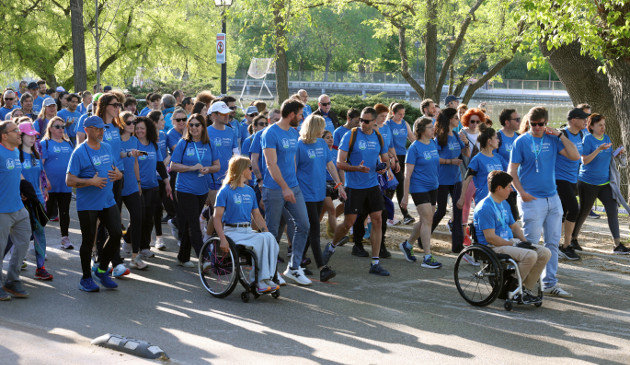Climate change is rapidly impacting our planet and the environment we rely on, through rising temperatures, extreme weather events such as wildfires, and the intensification of air pollution1.

A healthy environment contributes so much to our health and wellbeing – the air that we breathe, the food that we eat, the places we live – that any negative impact on the environment as a result of climate change risks damaging our health.
The World Health Organisation (WHO) says climate change is the "single biggest health threat facing humanity"2. According to the WHO the unfolding climate crisis "threatens the essential ingredients of good health and has the potential to undermine decades of progress in global health". It estimates that between 2030 and 2050, climate change is expected to cause approximately 250,000 additional deaths every year from malnutrition, malaria, diarrhoea and heat stress alone2.
Specifically, what are the health impacts on people?
- Extreme temperatures (hot or cold) – similar to those we’ve seen around the world in recent years – are well-established risk factors for heart and lung disease3. The intensification of air pollution can affect respiratory conditions such as asthma, and this is being further exacerbated by wildfires which reduce air quality, lead to smoke exposure and increase hospital admissions4. There are also concerns around the impacts of extreme heat on maternal, neonatal and child health5, and greater periods of heat and sun exposure are expected to drive an increase in skin cancer cases6.
- Global warming is a major factor in the emergence of diseases in parts of the world where they may not have previously posed a significant threat. As global temperatures rise and continents get warmer, diseases that were once confined to tropical and sub-tropical regions are expanding their range7. For example, mosquitoes, and the potentially deadly diseases they carry (like malaria, dengue and zika), could spread to and survive at higher latitudes and altitudes, while increased rainfall can also support new infection breeding sites8.
- The mental health impacts of climate change are also starting to be understood9, from eco-anxiety right through to PTSD and suicide. It is estimated globally that half of people who survive extreme weather events experience adverse mental health10.
- As well as the direct impacts of climate change on human health, climate change also poses a threat to the delivery of healthcare services and healthcare infrastructure. The rising frequency and intensity of severe weather events means that hospitals, clinics or care homes may be physically damaged or face power outages. Roads may be flooded or destroyed preventing healthcare professionals from reaching patients, and patients may struggle to access basic healthcare services.
Who will be most at risk?
In short, the most vulnerable populations are at highest risk of their health being impacted by climate change. The severity of these health risks will depend on:
- how we prepare and adapt to changing threats to global health caused by climate change
- individual factors such as age, behaviour, underlying health conditions and economic status
- where a person lives and how exposed they are
The WHO has concluded: "In the short- to medium-term, the health impacts of climate change will be determined mainly by the vulnerability of populations, their resilience to the current rate of climate change and the extent and pace of adaptation. In the longer-term, the effects will increasingly depend on the extent to which transformational action is taken now to reduce emissions and avoid the breaching of dangerous temperature thresholds and potential irreversible tipping points"11.
References
1. The 2022 report of the Lancet Countdown on health and climate change: health at the mercy of fossil fuels
2. Climate change (who.int)
3. Effects on asthma and respiratory allergy of Climate change and air pollution



